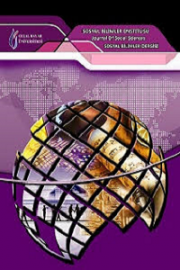Paul Tillich’in Vahiy Anlayişi
Paul Tillich’s Understanding of Revelation
Author(s): Habib ŞenerSubject(s): Metaphysics, Epistemology, Existentialism, Philosophy of Religion
Published by: Celal Bayar Üniversitesi Sosyal Bilimler Enstitüsü
Keywords: God; Holy/Divine Spirit; Prophet; Revelation; Paul Tillich;
Summary/Abstract: The concept of revelation, which means that God declares orders and prohibitions to mankind, is in a central position, especially in divine religions. In the history of thought many philosophers have expressed their views on revelation. Paul Tillich thinks that the concept of revelation is used in the wrong sense. According to Tillich, revelation is not the knowledge that is reported to prophets about divine issues or moral norms. The knowledge of revelation is the knowledge of God, directly or indirectly, and therefore it is analogical or symbolic. Tillich, divides revelation into two parts, original and dependent. The original revelation belongs to the prophets. Dependent revelation is constantly taking place in every person’s life. Therefore, God’s word should not be limited to the Holy Scriptures. Tillich explains his views on ecstasy and miracles in connection with revelation. Because revelation only takes place in the ecstasy and miracle correlation. In addition, Tillich states that the history of revelation is not the history of religions, especially of Judaism and Christianity. In this article, the understanding of revelation of Paul Tillich, who is one of the most important existentialist philosophers of the twentieth century will be examined.
Journal: Celal Bayar Üniversitesi Sosyal Bilimler Dergisi
- Issue Year: 16/2018
- Issue No: 01
- Page Range: 261-290
- Page Count: 30
- Language: Turkish

